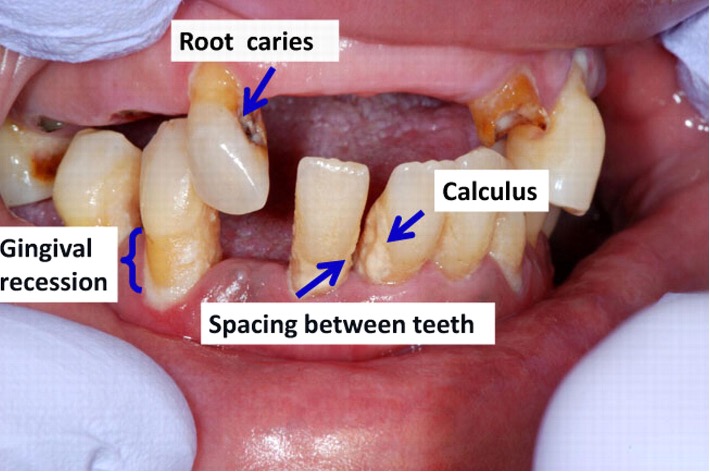Diabetes is a chronic condition that affects millions of people worldwide, with far-reaching consequences on overall health, including oral care. It’s essential to understand the link between diabetes and oral health to maintain total wellness.
In this issue, we will discuss how diabetes affects your total health and in particular in your oral health.
Poorly managed diabetes can lead to a variety of oral health complications, while taking care of your mouth can also help control blood sugar levels. Here’s what you need to know about diabetes and your oral care.
Diabetes, especially when uncontrolled, increases the risk of several oral health issues. The high blood sugar levels associated with diabetes lead to an increase in glucose in the saliva, which in turn creates a perfect environment for bacteria to thrive. These bacteria can cause plaque buildup, which is the leading cause of gum disease, or periodontal disease. Gum disease is more common and severe in people with diabetes due to their compromised immune system and slower healing capabilities.
Common Oral Health Issues in Diabetic Patients
- Gum Disease (Periodontitis): As mentioned, the relationship between diabetes and gum disease is significant. Gingivitis, the milder form, involves inflammation of the gums, while periodontitis affects the tissues that support your teeth, causing them to loosen and eventually fall out. Diabetic patients are more prone to advanced gum disease due to delayed wound healing and a weakened defense against bacterial infections.
- Dry Mouth (Xerostomia): Diabetes can reduce saliva production, leading to a dry mouth. Saliva plays a crucial role in neutralizing acids produced by bacteria and washing away food particles. A dry mouth increases the risk of cavities, sores, and infections in the mouth, all of which can exacerbate oral health problems.
- Thrush (Oral Candidiasis): People with diabetes are more likely to develop fungal infections like thrush. The increased glucose levels in saliva, combined with a weakened immune response, provide an ideal environment for fungal growth, causing white patches, redness, and discomfort in the mouth.
- Slow Healing of Oral Tissues: High blood sugar can delay the healing of tissues, making it difficult to recover from oral surgeries, tooth extractions, or even simple sores in the mouth. This is why uncontrolled diabetic patients need to take extra precautions when undergoing dental procedures.
Maintaining Your Oral Health with Diabetes
- Control Blood Sugar Levels: The foundation of good oral health in diabetic patients starts with managing blood sugar levels. Proper control of blood glucose levels reduces the risk of gum disease and other oral infections.
- Practice Good Oral Hygiene: Brushing your teeth at least twice a day, flossing daily, and using an antimicrobial mouthwash can help prevent plaque buildup and gum disease.
- Visit Your Dentist Regularly: Regular dental check-ups are crucial for people with diabetes. Dentists can spot early signs of gum disease, dry mouth, and other issues before they become more serious.
- Stay Hydrated: Drinking water helps keep your mouth moist, washes away food particles, and dilutes glucose in saliva, reducing the risk of oral infections.
Oral care is an essential part of managing diabetes and overall health.
By understanding the connection between diabetes and your mouth, practicing good oral hygiene, and working closely with your dentist, you can significantly reduce your risk of developing serious oral health problems. A proactive approach to oral care not only protects your smile but also plays a crucial role in managing your diabetes for total health and wellness
Dr. Kendal V. O. Major is Founder and CEO of Center for Specialized Dentistry which is a comprehensive family dental practice operating in Nassau and Freeport. He is the first Bahamian Specialist in gum diseases and dental implants since 1989. He also is a certified Fast braces provider. His practice is located at 89 Collins Avenue, Nassau at (242)325-5165 or [email protected].

Diabetes Related Gum Disease and Cavities





